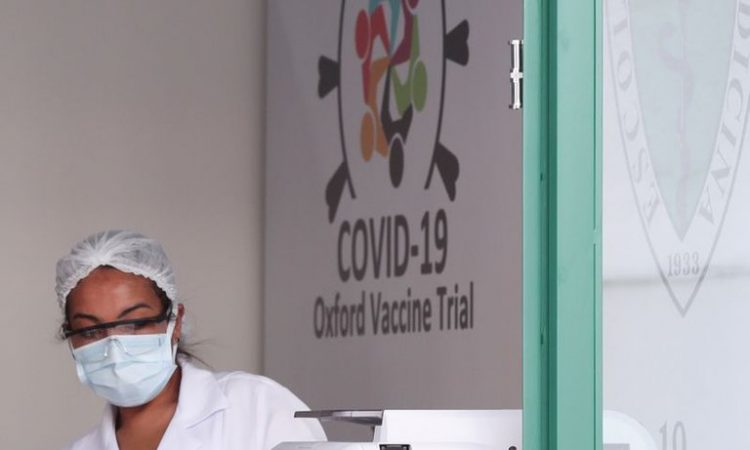The University of Oxford announced the first results of its coronavirus vaccine: it generates antibodies and is safe

The coronavirus vaccine developed by the British University of Oxford was “safe” and “trains” the immune system, according to the findings of the early stages of the study, released on Monday.
Called AZD1222, the formula is being developed by AstraZeneca in collaboration with scientists at the University of Oxford, and did not show any serious side effects in the 1,077 volunteers, who produced immune responses of antibodies and T cells that can fight the virus, according to the trial results published in the medical journal The Lancet.
These findings are considered “very promising,” although larger-scale trials are still needed to determine whether the antibodies are sufficient to offer long-term protection against the disease.
“Hopefully this implies that the immune system will remember the virus, so that our vaccine provides protection for an extended period,” said study lead author Andrew Pollard of the University of Oxford. “However, we need more research before we can confirm that the vaccine effectively protects against SARS-CoV-2 (COVID-19) infection, and to determine how long that protection lasts,” he said.
AstraZeneca is one of the leading pharmacists in the race to find a vaccine against the disease that has caused more than 600,000 deaths worldwide, along with other companies testing candidates in mid- and final-stage clinical trials. The firm said a phase III trial of its potential vaccine is currently underway in the UK, Brazil and South Africa, and will begin soon in the United States.
“If our vaccine were to prove effective, it is a promising option, as this type of vaccine can be easily manufactured on a large scale,” said Sarah Gilbert, a researcher at the University of Oxford.
The researchers said the vaccine caused more frequent mild side effects compared to a control group, but that many of these could be reduced with acetaminophen without serious adverse effects being detected.
The formula, which is being developed at unprecedented speed, is made from a genetically engineered virus that causes the common cold in chimpanzees. Scientists have greatly modified it so that it cannot cause infections in people and so that it more closely resembles the coronavirus. They have done this by transferring the genetic instructions for the so-called “peak protein” of the coronavirus – the key tool it uses to invade human cells – into the vaccine they are developing.
In this way, this vaccine resembles the new coronavirus, and the immune system can learn how to fight it. Being based on a modified adenavirus, which does not replicate, it is safer, especially for the most fragile patients.
Weeks ago, the British government signed an agreement with the pharmaceutical company for the production of 100 million doses, an amount that exceeds the population of the United Kingdom. These contracts are key to ensuring the production of the trials and to gaining time. It has also entered into negotiations with other countries, but assured that it will not seek to generate profits from its vaccine during the pandemic.
For his part, British Prime Minister Boris Johnson said in a message on Twitter that these findings constitute “very positive news” and praised the “brilliant and pioneering scientists and researchers.”
When?
More than 100 vaccines are being developed and tested worldwide to try to stop the COVID-19 pandemic, which has killed hundreds of thousands of people and wreaked havoc on the global economy.
This Monday, Johnson had put cold cloths in the hope of having a vaccine available in the coming months. “I have my fingers crossed, but to say that I am 100% sure that we are going to receive a vaccine this year, or indeed next year, is, unfortunately, an exaggeration. We are not there yet, ”he said. British government adviser Kate Bingham has also warned that one cannot “be too optimistic”.
For her part, the chief scientist of the World Health Organization (WHO), Soumya Swaminathan, pointed out that the vaccine against COVID-19 could be on the market at the disposal of health authorities in mid-2021.
In an interview with DPA, the expert expressed hope that at least “a couple” of the 20 vaccine candidates will work. “It would be very unfortunate if they all fail. It’s possible to have results in early 2021. So at the beginning of the new year we might eventually have a vaccine. Then it has to be manufactured and expanded. So if we are very practical, then we are looking at mid-2021 when we will have a vaccine that can be widely deployed, “he said.
The researcher also opined on the different studies that have shown that antibody levels seem to decrease rapidly after infection. In this regard, she noted that the fact that neutralizing antibodies disappear “does not mean that immunity has disappeared.”
From EFE and Reuters







